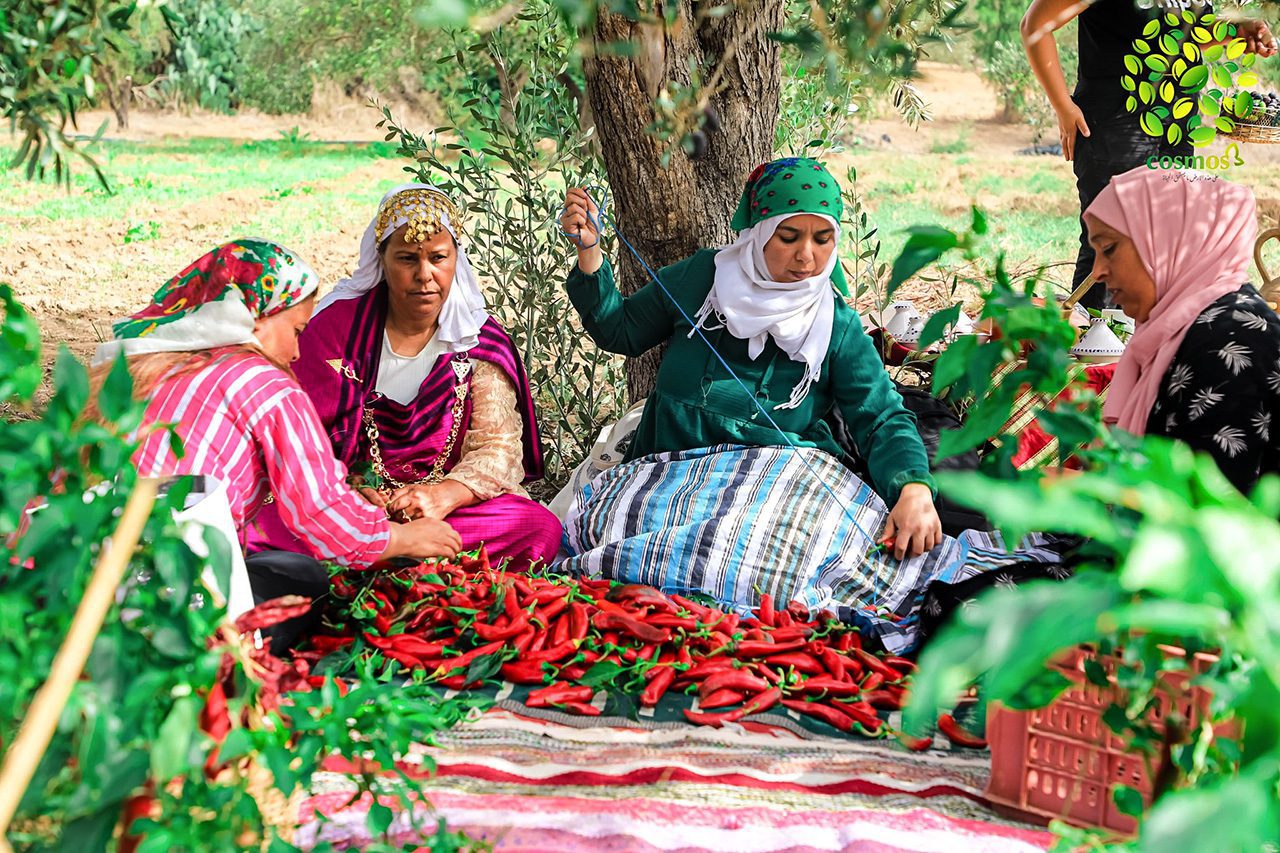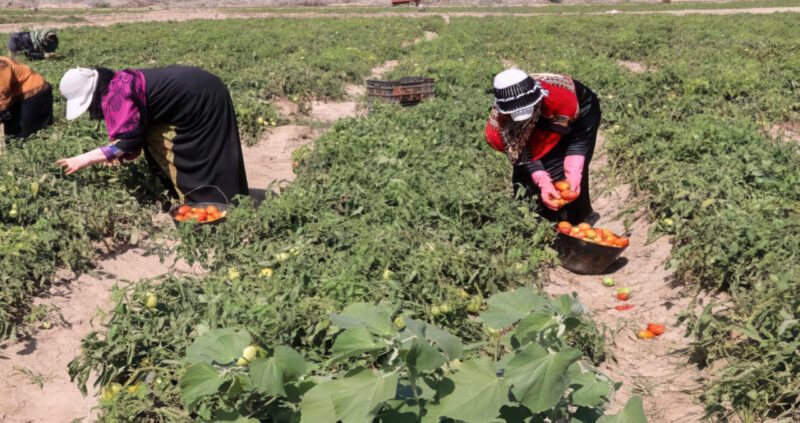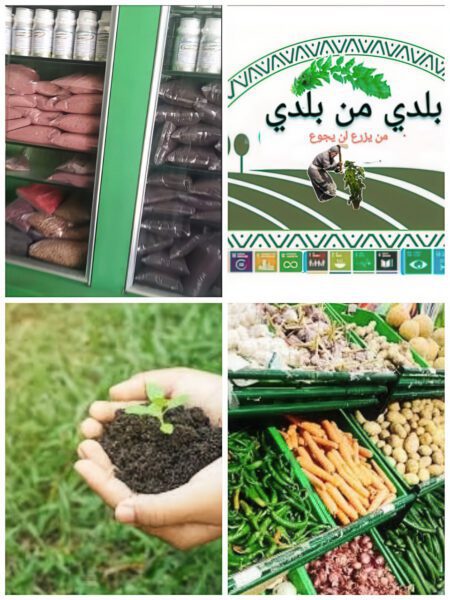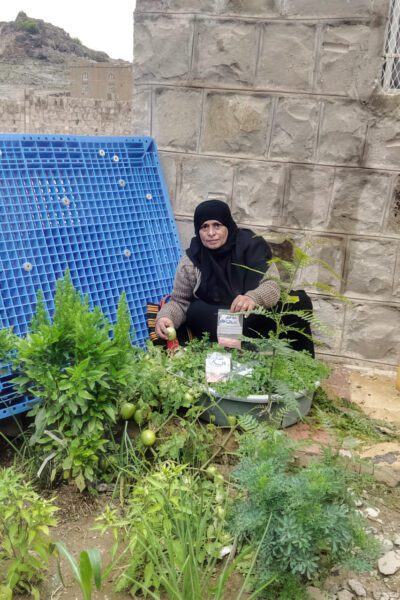Sovereign Seeds: Reclaiming MENA’s Agricultural Future
Reviving local food systems and unlocking rural prosperity
Reviving local food systems and unlocking rural prosperity

Climate change and food insecurity are among the greatest global challenges of our time. In 2024, the UN Food Systems Summit warned that over 700 million people worldwide face hunger — a crisis “exacerbated by climate extremes, conflict, and economic shocks.” UN Secretary-General António Guterres put it bluntly: “Our food systems are broken — and billions of people are paying the price.”
Nowhere is this breakdown more visible — or more urgent — than in the Middle East and North Africa (MENA). Here, food is no longer just a development goal. It’s a question of survival.
The numbers speak volumes. MENA is home to just 6% of the world’s population, yet it accounts for 12.2% of the undernourished — over 54 million people struggling to meet basic nutritional needs.

Seeding in Yemen
The region’s food crisis stems from deep structural vulnerabilities — starting with geography:
MENA is one of the most food-import-dependent regions in the world, sourcing between 50% and 90% of its food:
Globally, average food import dependency ranges between 20% and 25% — meaning MENA’s dependence is two to four times higher. In a world of increasingly volatile markets and fragile supply chains, such reliance is not just unsustainable — it’s perilous.
Across MENA, agro-social entrepreneurs are stepping in where formal systems fail.
In 2022, the war in Ukraine disrupted global wheat supplies, triggering bread crises in Lebanon, Tunisia, and Yemen. Simultaneously, droughts in Iraq and Morocco reduced crop yields by up to 50%, sending food prices soaring and pushing families deeper into vulnerability. Several MENA countries now face severe shortages, with projections indicating worsening conditions over the next decade.
MENA’s food crisis is not solely environmental. It is the outcome of decades — even centuries — of policy failure, conflict, and systemic neglect.
The discovery of oil transformed many economies, but also deprioritized agriculture. National investments shifted to fuel subsidies and consumer goods, sidelining food production. This reoriented economies toward global imports and created dependency on external markets.
Meanwhile, conflict has become a defining reality in many MENA countries. War doesn’t just destroy infrastructure — it unravels entire food systems. Fields go fallow, markets collapse, supply chains fracture, and hunger spreads.
Once central to the Fertile Crescent, countries like Syria and Yemen now rely on humanitarian aid and rank among the lowest globally in food security. The need to build local, resilient food systems has never been more urgent.
Despite these compounding crises, agriculture remains a vital — and too often undervalued — pillar of the MENA economy. In many countries, it is the largest employer, the primary income source in rural areas, and a critical buffer against poverty and instability.
War doesn’t just destroy infrastructure — it unravels entire food systems.
More than 40% of MENA’s population lives in rural areas — in Yemen, Sudan, and Mauritania, that figure reaches 60–70%, underscoring the deep connection between rural livelihoods and national stability. For millions, farming isn’t just an occupation — it’s a lifeline.
In Sudan, Morocco, and Yemen, agriculture employs over 30–40% of the workforce. In Sudan, it contributes roughly one-third of the GDP. In Tunisia, the sector supports around 15% of the population, especially in the marginalized interior, where rural women engage extensively in olive picking, date harvesting, and dairy production — often in informal, precarious, and poorly paid roles.

The Baladi Project
Beneath these figures lies vast untapped potential. Over 60% of MENA’s population is under 30, offering a significant demographic advantage. Yet rural youth are increasingly disillusioned — underemployed, migrating to urban centers, or abandoning agriculture entirely. The reasons are clear: outdated practices, deteriorating infrastructure, limited access to capital and training, and poor market linkages have made agriculture feel like a dead end rather than a foundation for the future.
At the same time, the sector is profoundly feminized in terms of labor — though rarely in leadership. Across MENA, women are the backbone of food production, yet remain excluded from land ownership, visibility, and decision-making. In Egypt, for instance, nearly half of agricultural workers are women — but they own less than 5% of agricultural land.
Still, the resilience of rural women, the energy of youth, and the cultural wisdom of farmers are powerful assets — if only they are recognized and supported. They hold the key to building a regenerative, inclusive agricultural future.
Across MENA, agro-social entrepreneurs are stepping in where formal systems fail. Conflict and crisis have created new opportunities for locally grounded innovation. As imported food becomes increasingly unreliable and expensive, the demand for nutritious, locally grown alternatives is rising. This is a critical moment to invest in resilient, community-led agricultural systems designed by those who understand their land and people best.
One such changemaker is Samia, a schoolteacher in a remote village outside Sana’a, Yemen. Her journey began in crisis: her daughter nearly died from acute malnutrition. The cause wasn’t just poverty — it was systemic neglect. Her village was saturated with qat (a mild narcotic plant), crowding out vegetables, with the nearest fresh produce markets hours away.
With less than $10, Samia bought vegetable seeds from the city and planted them in her home yard. She began sharing her harvest — and seeds — with her neighbors. Within a year, she launched her own initiative, Baladi min Baladi (“From My Land to My People”), with a bold mission: to replace qat with food and revive a once-thriving agricultural heritage devastated by addiction, neglect, and war.
She now sells fortified seeds and teaches women how to grow their own food. She brought in a female agricultural advisor to shift community perceptions around nutrition and farming. Today, her village cultivates more than 4,000 square meters of previously underused land. Families have uprooted qat trees to grow tomatoes, peppers, and herbs — and some even earn a living by selling vegetables.

Samia planting
Samia’s project isn’t backed by a ministry or an international NGO. It was born of lived experience, necessity, and determination. She knows what it means to have nothing to cook — and no way to feed your child.
Her story illustrates a broader truth: with the right support — training in water-efficient methods like drip irrigation, planting drought-resistant crops, and investing in grassroots leadership — a new generation of farmers can cultivate prosperity where others see only despair. MENA has no shortage of people like Samia. What it lacks is the will to invest in them.
What the region needs isn’t another aid program or imported solution. It needs a paradigm shift. It’s time to revalue and reinvest in the basics: land, water, soil, and food. From the ground up, MENA must build food systems that can feed millions, create green jobs, and shield future generations from cascading climate, economic, and political crises.
The solutions exist — but they require political will, localized capital, and collective action. States cannot do this alone. Nor can they continue relying on outdated, top-down approaches. Meeting the moment demands a holistic ecosystem model — one that connects and empowers actors at every level of the food system.
We must foster a thriving agro-entrepreneurship ecosystem — where rural incubators, accelerators, research institutions, impact investors, and governments work in synergy to support farmers, youth, and women leaders.
At the heart of this transformation are small-scale farmers — especially women — who carry the food system on their backs, yet receive little recognition or resources.
Real support means investing in grassroots innovation, upgrading rural infrastructure, and advancing locally rooted, climate-smart solutions — from hydroponics and permaculture to solar-powered irrigation and greywater reuse.
MENA has no time to waste. But it has what matters most: people. People who know how to grow with little, organize with less, and uplift entire communities. It is time to trust them, invest in them, and recognize that they hold the seeds of a more prosperous, sustainable future — for both people and planet.
Related Content
Comments
Deep Dives

Featuring
Clarisse Awamengwi
IE Correspondent
July 17 - 12:00 PM EST

Featuring
Russell McLeod
July 24 - 12:00 PM EST
RECENT
Editor's Picks
Webinars
News & Events
Subscribe to our newsletter to receive updates about new Magazine content and upcoming webinars, deep dives, and events.
Become a Premium Member to access the full library of webinars and deep dives, exclusive membership portal, member directory, message board, and curated live chats.
At Impact Entrepreneur, we champion fearless, independent journalism and education, spotlighting the inspiring changemakers building the Impact Economy. Diversity, equity, sustainability, and democracy face unprecedented threats from misinformation, powerful interests, and systemic inequities.
We believe a sustainable and equitable future is possible—but we can't achieve it without your help. Our independent voice depends entirely on support from changemakers like you.
Please step up today. Your donation—no matter the size—ensures we continue delivering impactful journalism and education that push boundaries and hold power accountable.
Join us in protecting what truly matters. It only takes a minute to make a real difference.
0 Comments